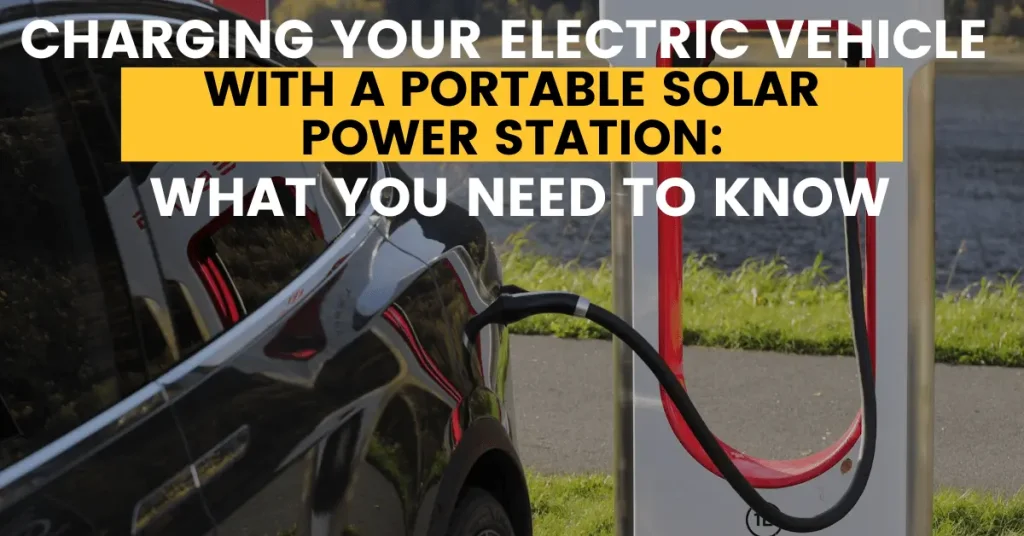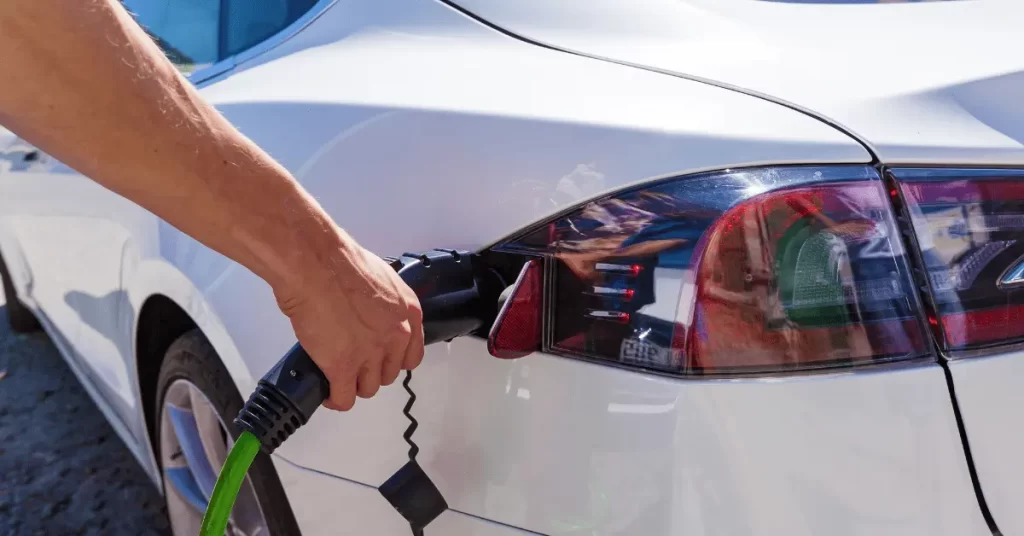Electric Vehicle, EV, sales have almost doubled from 2020 to 2021, with over 600,000 sold. Manufacturers have cumulatively sold over 2.5 million battery and plug-in vehicles in the last 12 years. In Q1 2022, there was a record 60% increase in EV registration, with about 158,600 sold, which is 4.6% of all new car registrations.
As more people transition to electric vehicles, the need for efficient charging methods has become increasingly important. While most EV owners rely on public charging stations or home charging stations, some are questing the use of portable solar power stations, since they are environmentally friendly and cost-effective option. However, there are a few things to keep in mind when using a portable solar power station to charge your EV.

The short answer is yes, you can charge an EV with a portable solar power station. However, charging your EV in this way may not be the most efficient or recommended method. The key is to make sure that the power station has a high enough output to meet the charging requirements of your vehicle. Many portable solar power stations have a maximum output of 120V, which is only suitable for level 1 charging.
Level 1 charging is the slowest and least powerful method of charging an EV. It uses a standard 120V AC electrical outlet, which provides a maximum charging rate of around 4-5 miles of range per hour. While this may be suitable for some EVs, it can take several days to fully charge a larger vehicle like a Tesla.

Another potential issue when using a portable solar power station to charge an EV is grounding. Many EVs require the input to have a ground bonded to the neutral, while some portable power stations use a floating ground. This can be easily fixed with a $10 adapter, but it’s important to consult with a certified electrician to ensure that it’s done safely.
While a portable solar power station can be used to charge an EV, it’s not the most practical solution for everyday use. With a level 1 charger, it can take up to 4 days to charge a Tesla, and even with 2,000 watts of solar power, you can only charge for about 4-5 hours per day. This means that it can take up to 19-24 days to fully charge a Tesla, making it impractical for daily use.
In conclusion, a portable solar power station can be a viable option for charging an EV, but it’s important to keep in mind the limitations of level 1 charging and grounding issues. While it may not be the most practical solution for daily use, it can be a useful backup option for emergencies or remote locations. As with any electrical system, it’s important to consult with a certified electrician to ensure that everything is done safely and correctly.

